Philippines
The Trade for Decent Work Project in the Philippines has been supporting the government and social partners (tripartite constituents) to ensure better compliance with international labour standards, especially core labour conventions under the EU's Generalised Scheme of Preferences Plus (GSP+)
The Philippines has been a member state of the ILO since 1948 and has a long history of labour and social legislation embodied in the Labour Code which was first promulgated in 1974 and subsequently amended. To date, the country has ratified 38 Conventions, of which 31 are in force. These include all the Fundamental Conventions and the Tripartite Consultation (International Labour Standards) Convention, 1976 (No. 144). The ratified instruments are generally implemented through the Labour Code, particularly Book V on Labour Relations as well as several other labour and social welfare legislations.
Additionally, the Philippines has been a beneficiary country of the EU Generalized Scheme of Preferences Plus (EU GSP+) since 25 December 2014. The EU GSP+ serves as a special economic incentive to encourage beneficiary countries to progressively comply with 27 international conventions on human rights, labour rights, protection of the environment and good governance.
The project in the Philippines has been providing technical support and assistance to the government, social partners, and relevant stakeholders to address gaps and challenges in leading regional economic zones and key, emerging export sectors and products that are vital for the Philippines under the EU-GSP+.
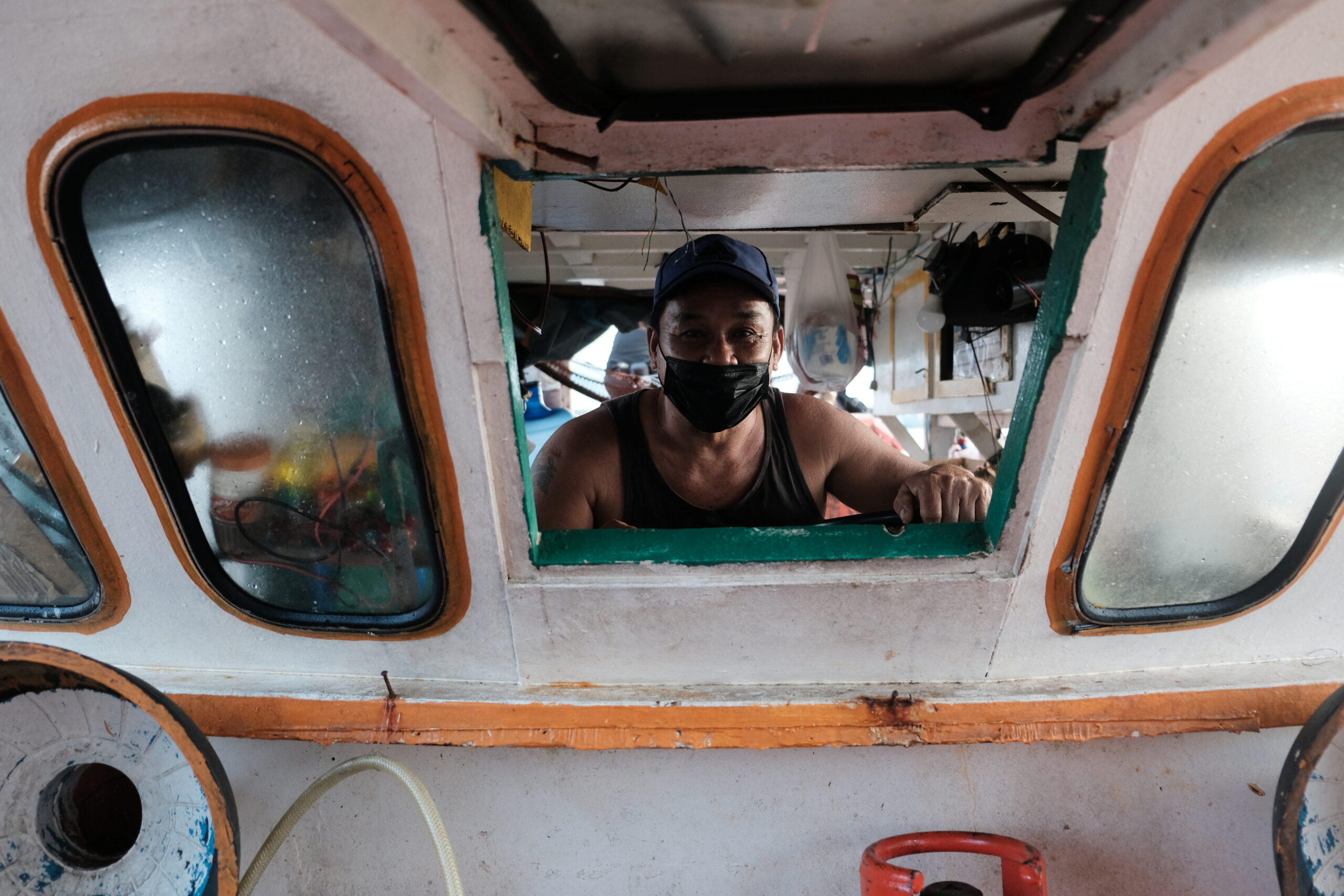
Objective
The overall objective of the project is to ensure the effective application of international labour standards in select sectors (garments, coconuts, sardines and selected special economic zones) and to support national compliance and alignment with EU GSP+ labour requirements. The project also promotes social dialogue to enhance compliance and improve the application of International Labour Conventions.
Achievements
Since 2021, the project has primarily focused on supporting activities, outputs, and results-based outcomes related to the ILO High-Level Tripartite Mission (HLTM) on the Application of Convention No. 87, which took place in January 2023. Following the conclusion of the HLTM, support was provided to tripartite constituents and social partners from the government, workers and employers to craft measures, initiatives and action plans that accommodate the findings and recommendations of the HLTM.
The key results of the project include the following:
- Tripartite constituents, social partners and stakeholders were capacitated and supported on Freedom of Association (FOA) and labour rights issues through technical assistance, capacity-building support, consultations, training workshops and social dialogue.
- Key FOA-related policies and guidelines ensuring better observance of workers’ freedom of association and collective bargaining, especially in export processing zones, were thoroughly discussed and reviewed by tripartite constituents, social partners, and relevant stakeholders.
- Tripartite constituents and social partners were supported in their preparation for the 2023 ILO HLTM and towards post-HLTM actions and ways forward, such as developing a national roadmap to improve the state of FOA in the Philippines.
- The Philippine labour dispute resolution system and workplace cooperation mechanisms were reviewed, and government labour and industrial relations officers, including conciliators, mediator-arbitrators and labour inspectors were capacitated to improve the dispute settlement and labour inspection systems.
- Strategic compliance plans for better labour law compliance in key EU GSP+ export sectors, such as garments, coconuts, and sardines/fishing, were formulated and adopted by tripartite social partners and industry stakeholders.
- Responsible business conduct (RBC) was promoted and a digital diagnostics self-assessment checklist tool for labour law compliance among employers’ organizations and business industry associations was developed and launched.
- A 15-point Labour Agenda and a Women Workers’ Agenda were launched by social partners from the broader Philippine labour sector and trade union movement.
Activities
The project focuses on the following objectives:
- Enhancement of ECOP’s and employers’ institutional capacity to promote gender-sensitive sustainable business practices, compliance, and social dialogue in selected industries and ecozones.
- Improvement of trade union services to support the monitoring of workers’ and women’s rights in the workplace, including on COVID19-related issues.
- Improved tripartite social dialogue mechanisms, with balanced participation of women representing workers, employers that adopt and monitor gender-sensitive strategic compliance plans or the Voluntary Code of Good Practices.
- Strengthened enterprise-level bipartite mechanisms that are better able to adopt gender-sensitive compliance plans and protocols that align with national and international labour standards, laws, and policies.
- Improved institutional frameworks for dispute resolution/case management.
Resources
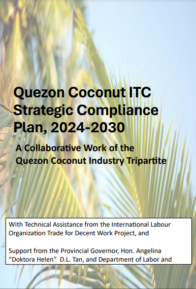
Informative / Philippines
ILO-Supported Quezon Coconut ITC and SCP Report
September 30, 2024

Informative / Philippines
Presentation: ILO-Supported Coconut Strategic Compliance Plan
January 1, 2024
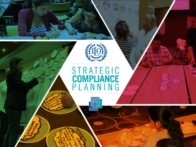
Informative / Philippines
Strategic Compliance Planning for the Philippines
January 1, 2023
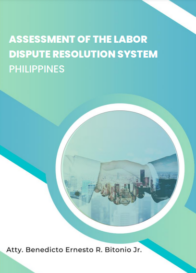
Informative / Philippines
Assessment of the Labour Dispute Resolution System in the Philippines 2022
December 1, 2022
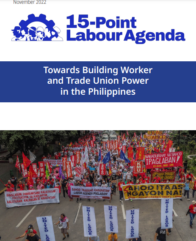
Informative / Philippines
15-Point Labour Agenda by Workers 2022
November 1, 2022
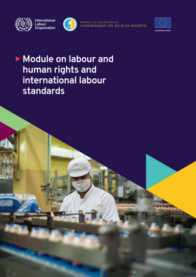
Informative / Philippines
ILO-EU-CHR Module on Labour and Human Rights-2022
January 1, 2022
Fundamental Conventions and select international labour standards and protocols ratified
Ratification of international labour instruments and national labour reform
Support for the ratification of ILO Convention No. 190 - Violence and Harassment Convention, 2019 (No. 190)
The project supported the tripartite constituents and social partners in campaigning for the ratification of ILO Convention No.190.
Action
- Technical support for the inclusion of the ratification of ILO Convention No. 190 in the 15-point Labour Agenda
- Technical support for the development of the Women Workers’ Agenda
Results
- Ratification of Convention No. 190 by the Philippines
- Identification and inclusion of a post- ratification plan for Convention No. 190 by the labour sector and trade union leaders, especially women labour leaders
- Integration of the plan into the Women Workers’ Agenda
- Adoption of the Women Workers' Agenda in 2024
Implementation of ratified international labour instruments
Support for the implementation of the 2023 ILO High Level Tripartite Mission (HLTM) Findings and Recommendations on the Application of ILO Convention No. 87
The project facilitated social dialogue in relation to the conduct of the 2023 ILO High Level Tripartite Mission (HLTM) and post-HLTM consultations towards the development of a national Freedom of Association Roadmap.
Action
- Provision of technical support to social partners in preparing for the HLTM and in conducting post-HLTM social dialogues and consultations
Results
- Freedom of Association Roadmap drafted by tripartite constituents and relevant stakeholders
- Island-wide consultations in support of the Labour Agenda and HLTM Recommendations organized by the broader Philippine labour sector and trade union movement
- An HLTM Report on Freedom of Association in the Philippines was submitted by Philippine trade unions and workers’ organizations. This includes a Women’s Sub-Report
Building the capacity of the Commission on Human Rights (CHR) to apply International Labour Standards
The project supported the CHR to engage more on Freedom of Association (FOA) by conducting a pilot training for CHR staff and personnel based on the ILO-EU-CHR Module on Labour and Human Rights.
Action
- Provided trainings to the CHR on freedom of association, labour rights and international labour standards
Results
- Strengthening the capacity of CHR staff and personnel, particularly special investigators, lawyers, and trainers to address FOA and other labour-related issues that concern human rights and dignity. This will be based on the ILO-EU-CHR Module on Labour and Human Rights and International Labour Standards developed and launched in December 2021
Constituents effectively participate in national processes that address gaps between national law and practice and targeted conventions
Strengthening the implementation of ILO Convention No. 87
Supporting the collaboration between the Commission on Human Rights (CHR) and the Department of labor and Employment (DOLE) on the right to Freedom of Association (FOA)
The project provided technical support and guidance to the CHR on international labour standards and FOA related issues and principles. This was in response to trade union proposals for greater involvement by the CHR on FOA and other labour rights related cases.
Action
- Supporting the CHR and the DOLE through training, capacity-building workshops, and the formulation of policy development
Results
- A Memorandum of Agreement (MOA) was signed, and an institutional partnership was formally forged between CHR and DOLE for cooperation in October 2023. The areas covered by the MOA include the monitoring and investigation of labour rights and FOA cases and the provision of compensation and protection for victims and families
Enhanced collaboration and dialogues between constituents, supply chain actors and trade partners to prompt responsible business conduct in policy and practice
Support the development of a tool for diagnostics self-assessment for employers’ compliance with labour standards
Support for the updating, development, and digitalization of the ECOP’s DSAC tool for better compliance
The project supported the Employers Confederation of the Philippines (ECOP) to update and launch the Employers’ Diagnostics Self-Assessment Checklist (DSAC) Tool. The updated version explicitly includes questions and elements of EU GSP+ trade and human rights obligations and the Environment, Social and Governance (ESG) principle. The tool was also presented to the ECOP’s Leaders’ Forum, a bipartite platform with workers and trade union leaders.
Action
- Digitalization and expansion of the DSAC Tool
- Presentation of the DSAC Tool to workers’ representatives for joint bipartite implementation and for conducting self-assessments at the enterprise level
Results
- The DSAC Tool for better labour law compliance has been updated, expanded, digitalized, and relaunched by the ECOP. It now includes components that address compliance with EU GSP+ export requirements, incorporates a gender equality and diversity perspective, and integrates ESG principles into compliance monitoring.
- The ECOP presented the enhanced tool to workers and trade unions to foster bipartite social dialogue and encourage joint compliance monitoring by workers and employers at the enterprise level, thereby increasing awareness and understanding among workers about the tool’s capabilities and benefits.
Promotion of the Tripartite Declaration of Principles for Multinational Enterprises and the Business and Human Rights Framework
Support to employers’ initiatives on business, labour and human rights, and freedom of association
The project supported the organization of a forum on business, labour and human rights by ECOP as a follow-up activity to the 2023 ILO High Level Tripartite Mission. The goal was to facilitate increased awareness of employers’ responsibilities and commitments in relation to the right to freedom of association and the right to organize and collectively bargain, among other rights.
Action
- Organizing an employers’ forum on business and human rights
Results
- The ECOP formally re-launched its Updated DSAC Tool to RBC industry practitioners along with a promotional video advocating for Responsible Business Conduct
- Enhanced awareness among employers and business representatives of the 2017 ILO Tripartite Declaration on Multinational Enterprises and Social Policy (MNE Declaration)
- Employers, business and industry leaders and their representatives had exchanges regarding their best practices on responsible business conduct
Support for the development of strategic compliance plans (SCP) for select export sectors- garments, coconuts, and sardines
To ensure labour law compliance, the project conducted a series of consultative workshops and meetings with stakeholders from the garments, coconuts, and sardines/fishing industries, with the aim of adopting strategic compliance plans (SCPs) in these sectors.
Action
- Conduct of SCP consultations, workshops, and presentations to social partners from the garments, coconuts, and sardines/fishing industries
Results
- The Industrial Tripartite Council (ITC) for the coconut industry in Quezon Province, known as the coconut capital of the Philippines, has been established for the first time
- The Sectoral Committee on Productivity (SCP) for the coconut industry in Quezon Province has been adopted by members of the ITC and tripartite constituents. This initiative received support from the Department of Labor and Employment (DOLE), Region IV-A Quezon Provincial Field Office and the Quezon Provincial Government
- An SCP scoping paper has been developed specifically for the sardines/fishing industry and presented to the fishing ITC in Zamboanga/Region IX
Tripartite constituents effectively fulfil their respective roles in reporting to the supervisory bodies.
Support for the establishment of a mechanism for drafting reports on International Labour Standards
Strengthening the capacity to report on the implementation of Freedom of Association and Protection of the Right to Organise Convention, 1948 (No. 87) (C087), following the 2023 ILO High Level Tripartite Mission (HLTM)
The Project provided technical support and assistance to tripartite constituents and social partners during the conduct of the 2023 ILO High Level Tripartite Mission.
Action
- Provision of technical support to social partners on ILO C087 HLTM preparations
Results
- The HLTM Report, including a Women’s Sub-Report, on the state of Freedom of Association in the Philippines, submitted by Philippine trade unions and workers’ organizations